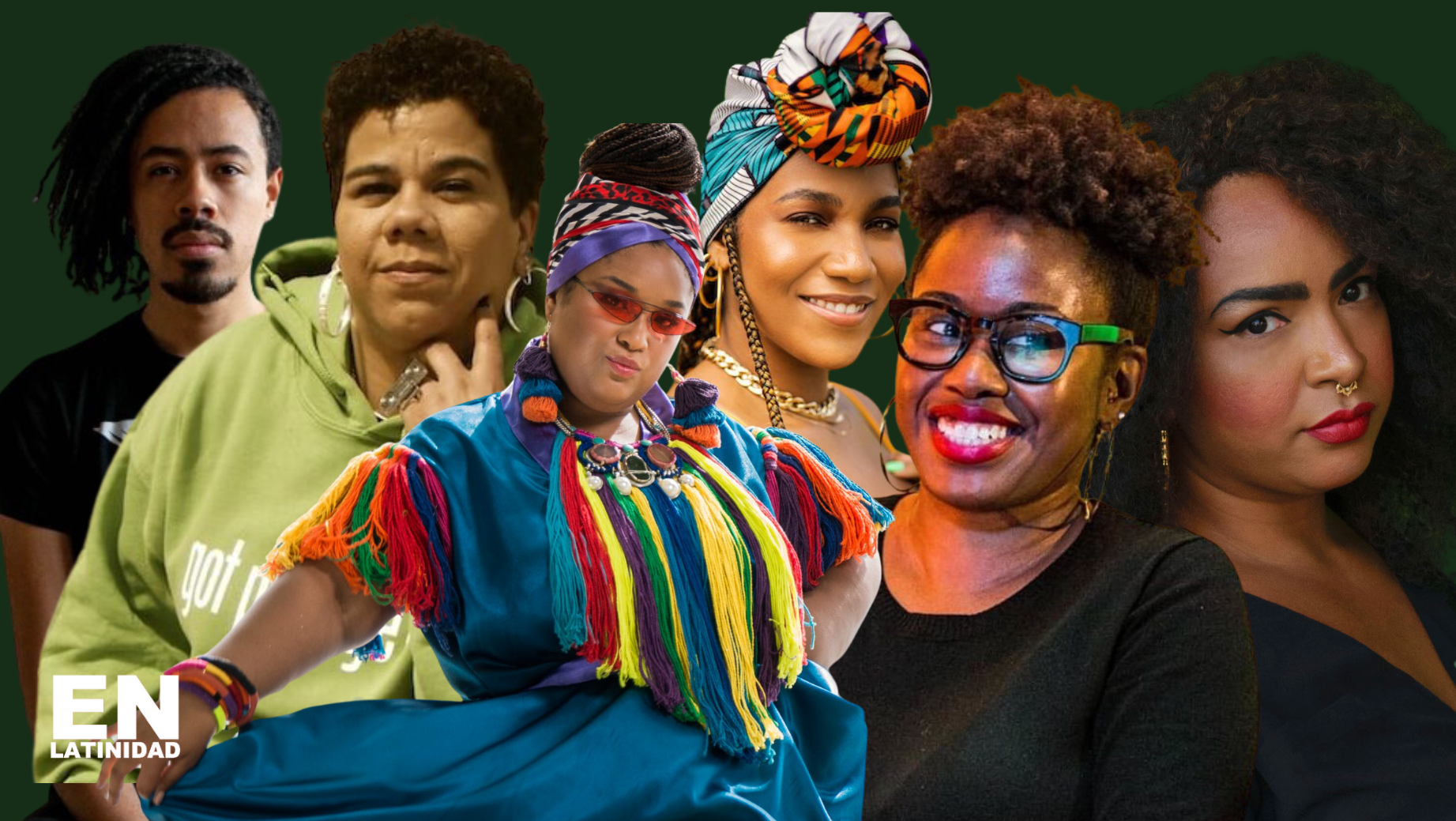History: The AfroLatinx Pioneers Who Shaped Media Forever
Before it was branded, before it was buzzworthy, before institutions scrambled to add Black faces to their Latine panels, there were voices who planted the seeds. People who spoke their truths not for trend, but for survival. For healing. For visibility. For those of us who didn’t see ourselves anywhere until we saw them.
This is an offering—a bouquet of metaphorical flowers for the thinkers, builders, and disruptors whose work continues to shift the ground we walk on as Afro-Latinxs. Because our conversations around race, gender, migration, and liberation would be shallow at best—and co-opted at worst—if not for their unrelenting brilliance.
Janel Martinez, founder of Ain’t I Latina?, built a digital sanctuary when Afro-Latinas weren’t even a whisper in the mainstream. Her platform wasn’t about diversity—it was about dignity. As a Honduran Garifuna woman from the Bronx, Janel didn’t just launch a blog—she created a home. Ain’t I Latina? has stood for over a decade as the premiere destination for Afro-Latina representation online, honoring the fullness of our identities in a media landscape that still too often renders us invisible. Janel’s work has changed lives—mine included. Through her, many of us first saw that we didn’t have to choose between Blackness and Latinidad. We were both. We are both.
Dr. Alan Pelaez Lopez takes us deeper—into the jagged, intersectional landscape of what it means to be Afro-Mexican, trans, undocumented, and alive in a country that wasn’t built for our survival. Their work as a poet, professor, and theorist is nothing short of revolutionary. Through memoir, protest, and scholarly brilliance, Dr. Pelaez Lopez weaves together the trauma of displacement with the joy of refusal. They ask us to dream beyond borders—literal and metaphorical—and to root our politics in love. Love for the undocumented, the trans, the exiled. Love that doesn’t require permission. Their poetry and research give language to experiences that often go unspoken, and in doing so, they offer us maps—maps for survival, for embodiment, for resistance.
To speak of AfroLatinidad without naming Dr. Rosa Clemente is to erase one of our fiercest scholars, journalists, and freedom fighters. A Boricua powerhouse from the South Bronx, Rosa has long been at the intersection of Black and Puerto Rican liberation movements. Whether on the mic, in academic spaces, or marching in the streets, her work is rooted in the Black radical tradition, pulling from the legacies of the Young Lords and the Black Panthers. Rosa’s voice has always cut through the noise—unapologetically naming the anti-Blackness that pervades Latinidad while insisting on collective liberation. She reminds us that theory means nothing if it isn’t tied to the streets.
Melania Luisa Marte, the Dominican poet whose words slice through time, reminds us that healing is ancestral. Her poetry imagines worlds where colonialism didn’t fracture us—where Black girls are free, soft, held. In her writing, we are both rage and reverence, memory and magic. Through collections like Plantains and Our Becoming, Melania dreams of the uncolonized self, one that knows joy, rest, and agency. Her words aren’t just beautiful—they’re blueprints for a kind of freedom we deserve to taste in our lifetimes.
And then there’s Zahira Kelly, a.k.a. Bad Dominicana—a truth-teller, a heat-bringer, and one of the first to use digital space to dismantle Latinidad’s deep-rooted anti-Blackness. Long before hashtags were strategy, Zahira was pushing culture forward with #MaybeHeDoesntHitYou, a viral campaign that cracked open public discourse on emotional abuse. Her feminist takes—centered in Black Latinx experience—earned her a TEDxTalk, global recognition, and no shortage of pushback from those unwilling to confront colonialism in their own communities. But Zahira’s brilliance is in her refusal. Her work is sharp, soft, radical, and grounded in survival. It gave many of us the language to name our pain—and the power to demand better.
These five minds—Janel, Alan, Rosa, Melania, and Zahira—aren’t just thought leaders. They are architects. Archivists. Fire-starters. The work they’ve done is layered atop a rich and global lineage of Black feminism that taught us how to critique with compassion, how to resist through storytelling, and how to center the margins. Their impact ripples far beyond their platforms. They’ve given birth to frameworks, language, and movements that institutions now cling to—often without giving credit where it’s due.
We would not be here without them.
And while it’s easy for media cycles to forget, and for academia to erase, we remember. We honor. We build on their labor—because our lives depend on it. AfroLatinidad is not an aesthetic. It’s a commitment. One shaped by those who came before, those speaking truth right now, and those still to come.
To the thinkers who made us feel seen—thank you. We carry your words with us like armor. We are because you were. And still are.





Leave a Reply
You must be logged in to post a comment.